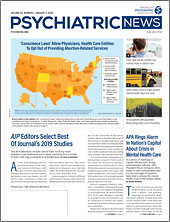Baylor College of Medicine and the city of Houston are partnering to provide early identification and treatment of children and adolescents with serious mental illness.
The Substance Abuse and Mental Health Services Administration (SAMHSA) awarded Houston and Baylor a $4 million, four-year grant to expand direct intensive services for students aged 6 to 17 years with serious and persistent mental illness, an initiative that both Baylor and Houston hope will last much longer than four years. The program, to be called Be-Well Be-Connected, will be managed by the Houston Mayor’s Office of Education.
The earlier that young people with serious mental illness are identified and receive treatment, the better their functional outcomes will be. Yet it can take upward of six to seven years to receive an accurate diagnosis, according to Laurel Williams, D.O., an associate professor of psychiatry at Baylor College of Medicine and chief of psychiatry at Texas Children’s Hospital.
Williams, who is leading the Be-Well Be-Connected program, said that the goal of the initiative is to ensure that students with bipolar disorder and first episode psychosis receive care as early as possible. Sometimes, psychosis can last 18 months or more before an individual receives treatment, she explained. “The longer your brain is in that state, the harder it is to return you to a baseline you had previously,” she said.
Mental health professionals will provide the services in the students’ homes, which is intended to help families overcome barriers that may otherwise hinder access to care. The program aims to provide intensive in-home therapy to at least 40 students a year.
While a focus of the initiative is to provide intensive services, Be-Well Be-Connected will also serve students with mild to moderate needs to prevent their problems from worsening. The program will screen students in five school districts across the Houston area, as well as provide immediate telepsychiatry crisis care at some schools.
The goal is to screen at least 500 youth and provide telehealth assessments to at least 150 students each year, along with a “connection to an appropriate mental health referral,” according to the SAMHSA website.
After Hurricane Harvey in 2017, the city was looking for opportunities to expand access to treatment for children with severe illness and those who may be struggling with trauma related to the hurricane, said Juliet Stipeche, director of the Mayor’s Office of Education.
The SAMHSA grant provides the foundational funding that will allow Houston to build the infrastructure and fill service gaps that new state and local funding will then keep afloat, according to Williams and Stipeche.
Baylor is working with several area partners to provide services to the students. The hope is that local organizations can work together in a comprehensive way to create “the level of care that’s necessary for children and families to improve,” Williams said. ■
Information on the SAMHSA grant is posted
here.
